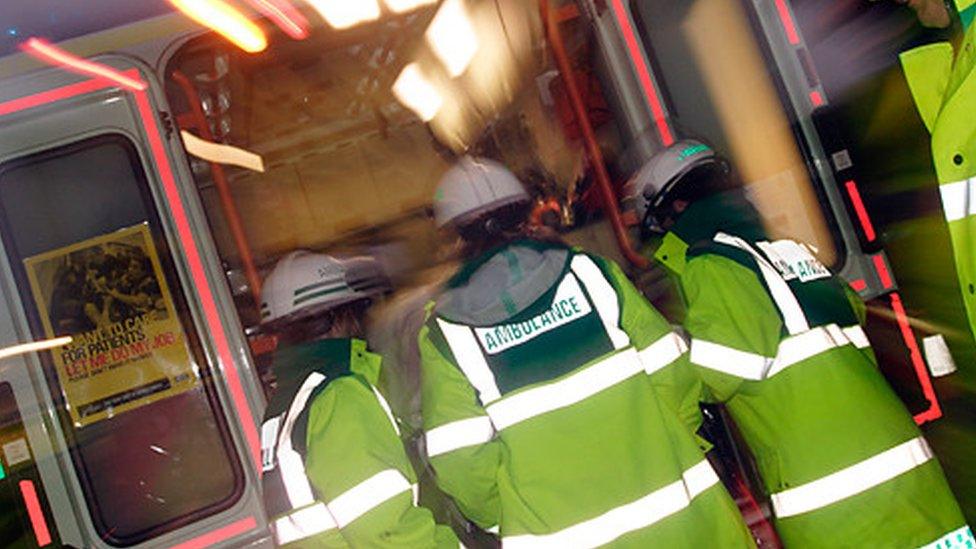Ambulance system failure 'might have led to patient death'
- Published

The London Ambulance Service is investigating whether computer failure early on New Year's Day may have contributed to the death of a patient.
BBC News can reveal that at least one 999 patient died during the period that the computers were down.
A major investigation is being carried out to determine the cause of the problems and the full clinical impact.
LAS director of operations Paul Woodrow said: "We're very sorry to anyone who experienced delays."
The Care Quality Commission said it would inspect the trust next month.
The computer-aided dispatch system, which logs emergencies and allocates ambulances, failed just after midnight.
'Didn't have a clue'
"We went from running a service to running a shambles," an ambulance crew member told the BBC.
"People couldn't get ambulances. People couldn't get help. They were waiting and waiting and waiting."
For five hours, call-takers had to process every incident with pen and paper, and control room staff were limited to using radios to track and assign response units.
The crew member, who was on duty overnight and wants to remain anonymous, said: "The voice of the control staff was becoming more desperate.
"They were starting to worry because the calls were backing up.
"Road staff were getting frustrated because we couldn't respond to jobs.
"They didn't have a clue where we were or where we were going."
Delayed response time
The problems happened on what is usually the busiest night of the year for the service, with hundreds of 999 calls every hour.
"The people of London were failed on New Year's Eve," the employee said. "They couldn't get hold of us if they needed to."
Asked if people died as a result of the computer system failure, he said: "Without a shadow of a doubt.
"If you'd had a cardiac arrest, we aim to get to you within eight minutes. It wouldn't have happened. You would have died.
"Patients with strokes would have lost the use of their arms, their legs, their speech, their swallow and possibly their life.
"If you were in a major incident or car accident, one hour is our aim for a trauma patient for definitive care - that wouldn't have happened."
Staff at the London Ambulance Service are trained to cope in the event of technical problems.
A triage system of responding to emergencies is still maintained in that situation.
'Contributory factor'
In response to the whistleblower's allegation that the London Ambulance Service back-up system failed, director of operations Paul Woodrow said: "We're very sorry to anyone who experienced delays during those issues on New Year's Day.
"We're obviously taking that matter very seriously, and to that end we've launched a full and comprehensive external investigation into identifying the root causes of the technical issues that we suffered.
"As part of that, we have identified one patient who sadly died.
"We want to look at that more closely to see whether the computer issues were potentially a contributory factor to that."
In 2015 the London Ambulance Service NHS Trust became the first of its kind in England to be placed into special measures.
A spokesperson for the Care Quality Commission told the BBC: "We were not directly informed of the recent control room problems at the trust.
"However, we are aware of the incident and subsequent concerns raised about the potential impact on patient safety.
"We are following this up directly with the trust and we have a scheduled inspection planned for early next month."